News
-
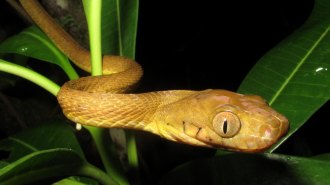 Animals
AnimalsBrown tree snakes use their tails as lassos to climb wide trees
A never-before-seen climbing technique could inspire the creation of new serpentine robots to navigate difficult terrains.
-
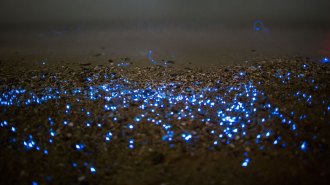 Climate
ClimateOcean acidification may make some species glow brighter
Ocean organisms use bioluminescence for hunting, defense and more. A new analysis shows that declines in water pH might change who glows and how much.
-
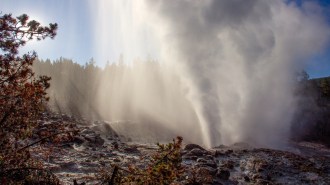 Earth
EarthReawakened Yellowstone geyser isn’t a sign of imminent explosion
The 2018 reactivation of Yellowstone’s Steamboat Geyser isn’t a portent of dangerous volcanic or hydrothermal eruptions, scientists say.
-
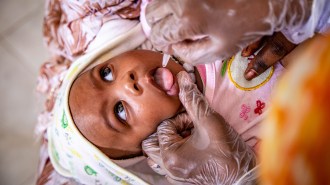 Health & Medicine
Health & MedicineA new polio vaccine joins the fight to vanquish the paralyzing disease
Work on the ground to vaccinate children continues in the push to finally eradicate polio.
-
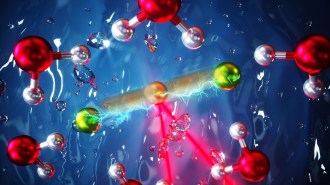 Chemistry
ChemistryThis weird chemical bond acts like a mash-up of hydrogen and covalent bonds
Chemistry students are taught that hydrogen bonds and covalent bonds are distinct, but a new study shows they exist on a continuum.
-
 Genetics
GeneticsSome identical twins don’t have identical DNA
Mutations arising early in development may account for genetic differences between identical twins.
-
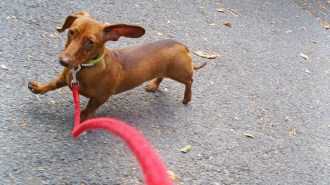 Anthropology
AnthropologyIce Age hunters’ leftovers may have fueled dog domestication
Ancient people tamed wolves by feeding them surplus game, researchers suggest.
By Bruce Bower -
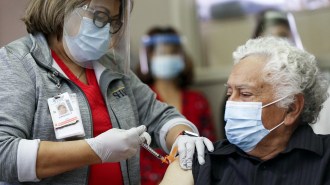 Health & Medicine
Health & MedicineSevere allergic reactions to COVID-19 vaccines are extremely rare, CDC says
Out of the first 1.9 million doses of Pfizer’s COVID-19 vaccine given in the United States, there were 21 reported cases of anaphylaxis, a CDC study finds.
-
 Genetics
GeneticsPlague may have caused die-offs of ancient Siberians
DNA suggests that the deadly bacterium that causes the plague reached northeast Asia by 4,400 years ago.
By Bruce Bower -
 Chemistry
ChemistryZinc-air batteries are typically single-use. A new design could change that
Swapping out the electrolyte in zinc-air batteries helps these next-gen power sources last longer.
-
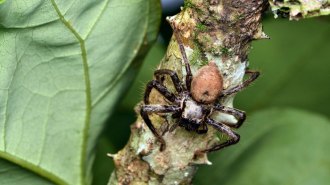 Animals
AnimalsThese spiders may sew leaves into fake shelters to lure frogs to their doom
Madagascar’s huntsman spiders use silk to turn two leaves into a cool hollow. Such microhabitats may appeal to the spiders’ prey, a study suggests.
By Jake Buehler -
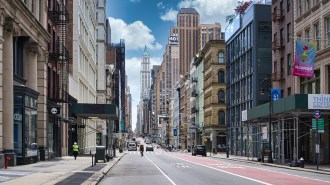 Climate
ClimateWhat the pandemic can teach us about ways to reduce air pollution
Data collected during COVID-19 shutdowns may help tease out the complicated chemistry that brews poor air quality.